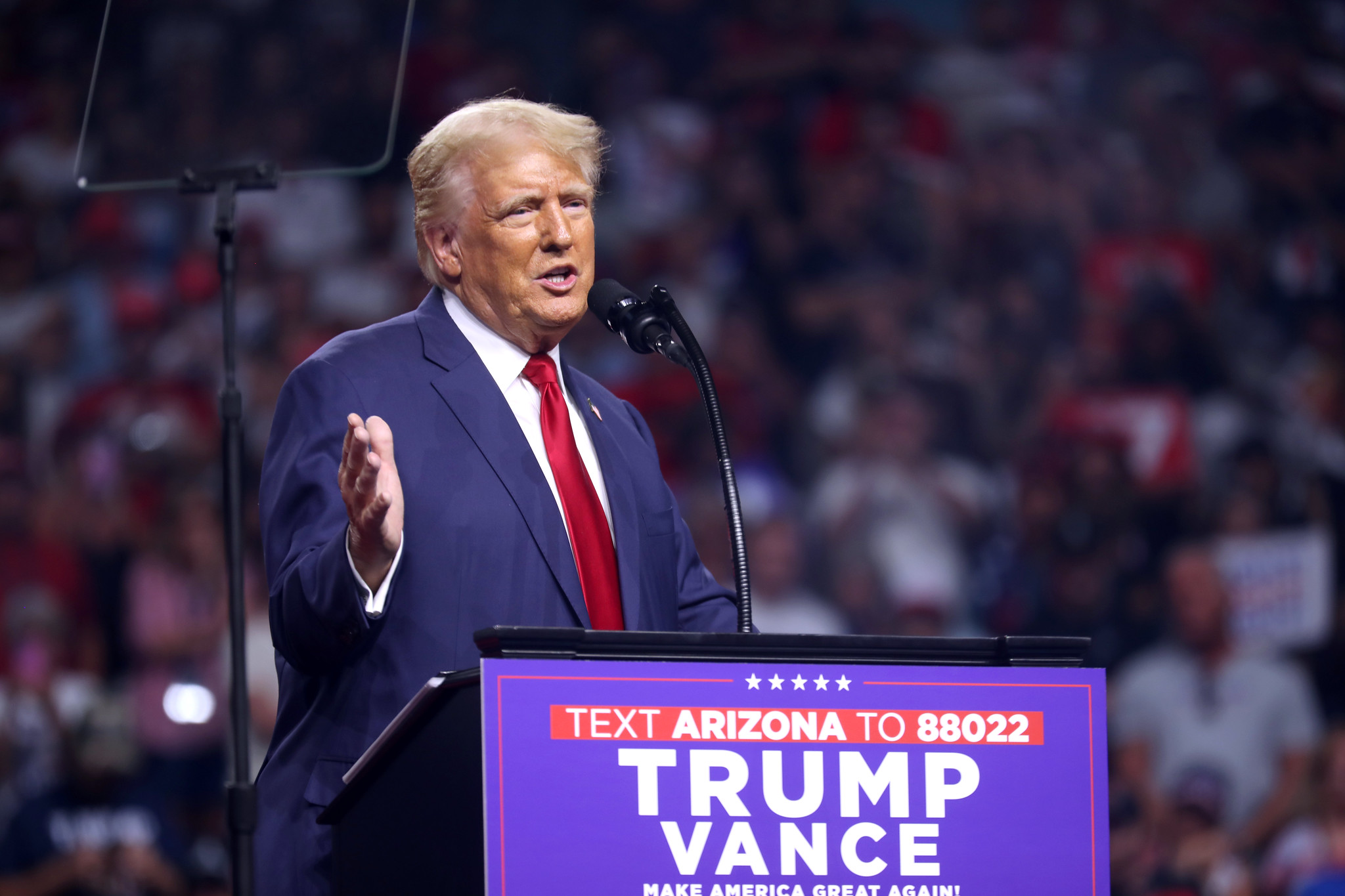The Biden administration has enacted the most consequential federal clean energy and climate policy in U.S. history, giving the nation a fighting chance at reducing greenhouse gas emissions fast enough to deal with the climate crisis. Former President Donald Trump, who has won the 2024 presidential election, has pledged to undo that work.
Though Trump’s executive powers will allow him to slow the energy transition in a number of ways, the extent to which he rolls back Biden’s clean energy accomplishments will be dictated in part by whether Republicans retain control of the House of Representatives. The GOP flipped the U.S. Senate, but votes are still being counted in key House races as of Wednesday morning.
Here’s what clean energy and climate experts say is most likely to be lost under a second Trump administration — and what might survive.
What Trump has said about energy
Trump’s rhetoric presages a worst-case future. He has called climate change a hoax and the Biden administration’s climate policies a “green new scam.” He has said he wants to repeal the landmark Inflation Reduction Act and halt the law’s hundreds of billions of dollars of tax credits, grants, and other federal incentives for clean energy, electric vehicles, and other low-carbon technologies.
Trump has also made “drill, baby, drill” a call-and-response line at his rallies, pledging to undo any restraints on production and use of the fossil fuels driving climate change. U.S. oil and gas production is already at a record high under the Biden administration.
“He has pledged to do the bidding for Big Oil on day one,” Andrew Reagan, executive director of Clean Energy for America, said during a recent webinar.
“Oil and gas lobbyists are drafting executive orders for him to sign on day one,” Reagan added, citing news reports of plans from oil industry groups to roll back key Biden administration regulations and executive orders.
A Trump administration would be all but certain to reverse key Environmental Protection Agency regulations limiting greenhouse gas emissions from power plants, light-duty and heavy-duty vehicles, and the oil and gas industry, all of which analysts say are necessary to meet the country’s climate commitments. It’s also almost sure to lift the Biden administration’s pause on federal permitting of fossil-gas export facilities.
Trump has also promised to withdraw the U.S. from international climate agreements (again), including the Paris agreement aimed at limiting global warming to no more than 2 degrees Celsius above pre-industrial levels.
“We know that Trump would take us out of the Paris agreement, and that would be the last time his administration uttered the word ‘climate,’” Catherine Wolfram, an economist at the MIT Sloan School of Management and former deputy assistant secretary for climate and energy economics in the Biden administration’s Treasury Department, told Canary Media. “Losing that global leadership would be one of the greatest losses of a Trump presidency.”
What will happen to the Inflation Reduction Act?
Trump won’t have the power to enact all of his promises on his own. Some of the decisions must be made by Congress, including any effort to repeal the Inflation Reduction Act or to claw back unspent funds from that law or the 2021 bipartisan infrastructure law.
Complete repeal of the Inflation Reduction Act would be highly disruptive to a clean energy sector that has seen planned investment grow to roughly $500 billion since the law was passed in mid-2022.
It would also undermine clean energy job growth, which has increased at roughly twice the pace of U.S. employment overall. A recent survey of clean energy companies found that a repeal of the law would be expected to lead to half of them losing business or revenue, roughly one-quarter losing projects or contracts, about one-fifth laying off workers, and about one in 10 going out of business.
“We found that especially rural areas and smaller rural communities would experience the largest negative impacts of repeal of the Inflation Reduction Act,” Shara Mohtadi, co-founder of S2 Strategies, said in an October webinar presenting the survey data. “These are the regions of the country that have seen the biggest uptake in the economic benefits and the manufacturing jobs coming from other countries into the United States.”
Indeed, most of the investment and job growth the IRA has spurred has taken place in states and congressional districts represented by Republicans.
These on-the-ground realities have driven expectations that large swaths of the law’s tax credits would be likely to survive even with Republican control of the White House and both houses of Congress. Trump would face pushback within his own party to undoing the law entirely.
In an August letter to current Speaker of the House Mike Johnson (R-Louisiana), 18 House Republicans warned against repealing the clean energy and manufacturing tax credits created by the Inflation Reduction Act, which have “spurred innovation, incentivized investment, and created good jobs in many parts of the country — including many districts represented by members of our conference.”
“Prematurely repealing energy tax credits, particularly those which were used to justify investments that already broke ground, would undermine private investments and stop development that is already ongoing,” the 18 House Republicans wrote. “A full repeal would create a worst-case scenario where we would have spent billions of taxpayer dollars and received next to nothing in return.”
Republicans would need a roughly 20-seat majority to overcome opposition from these party members opposed to a full repeal, said Harry Godfrey, head of the federal investment and manufacturing working group of trade group Advanced Energy United.
“I don’t envision Republicans holding the House with 20-plus seats,” he said.
Godfrey also doubted that a Trump administration would be eager to undermine the domestic manufacturing boom that the law’s tax credits have spurred. He noted that at the October 1 vice-presidential debate, J.D. Vance, the Republican Ohio senator and Trump’s running mate, emphasized the need for the U.S. to “consolidate American dominance” in key energy sectors and industries now dominated by China.
While Vance went on to falsely accuse the Biden administration of failing to bolster U.S. industries against China, the goal of emphasizing domestic competitiveness could lead Republicans to avoid undermining progress in that direction, he suggested.















